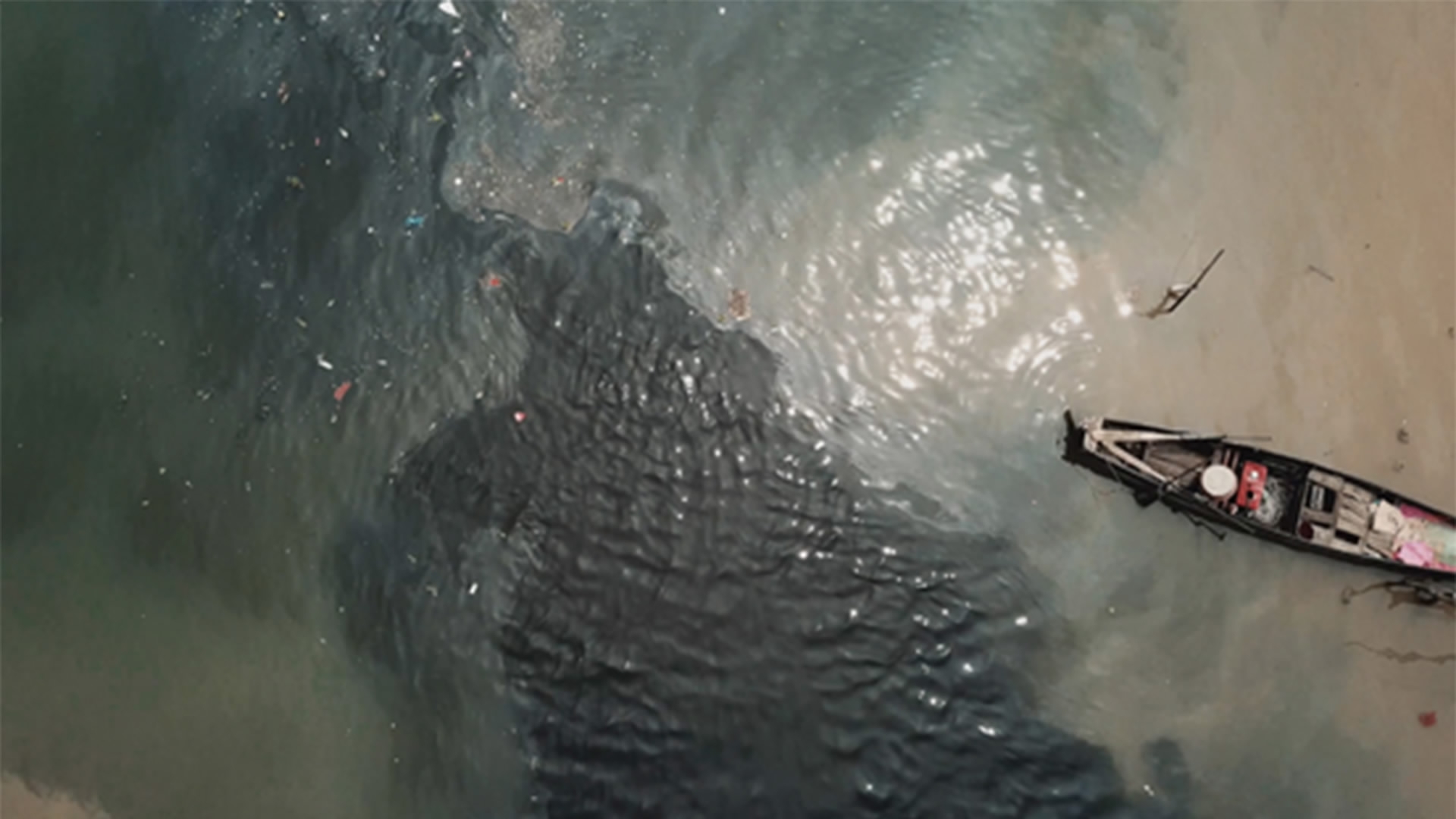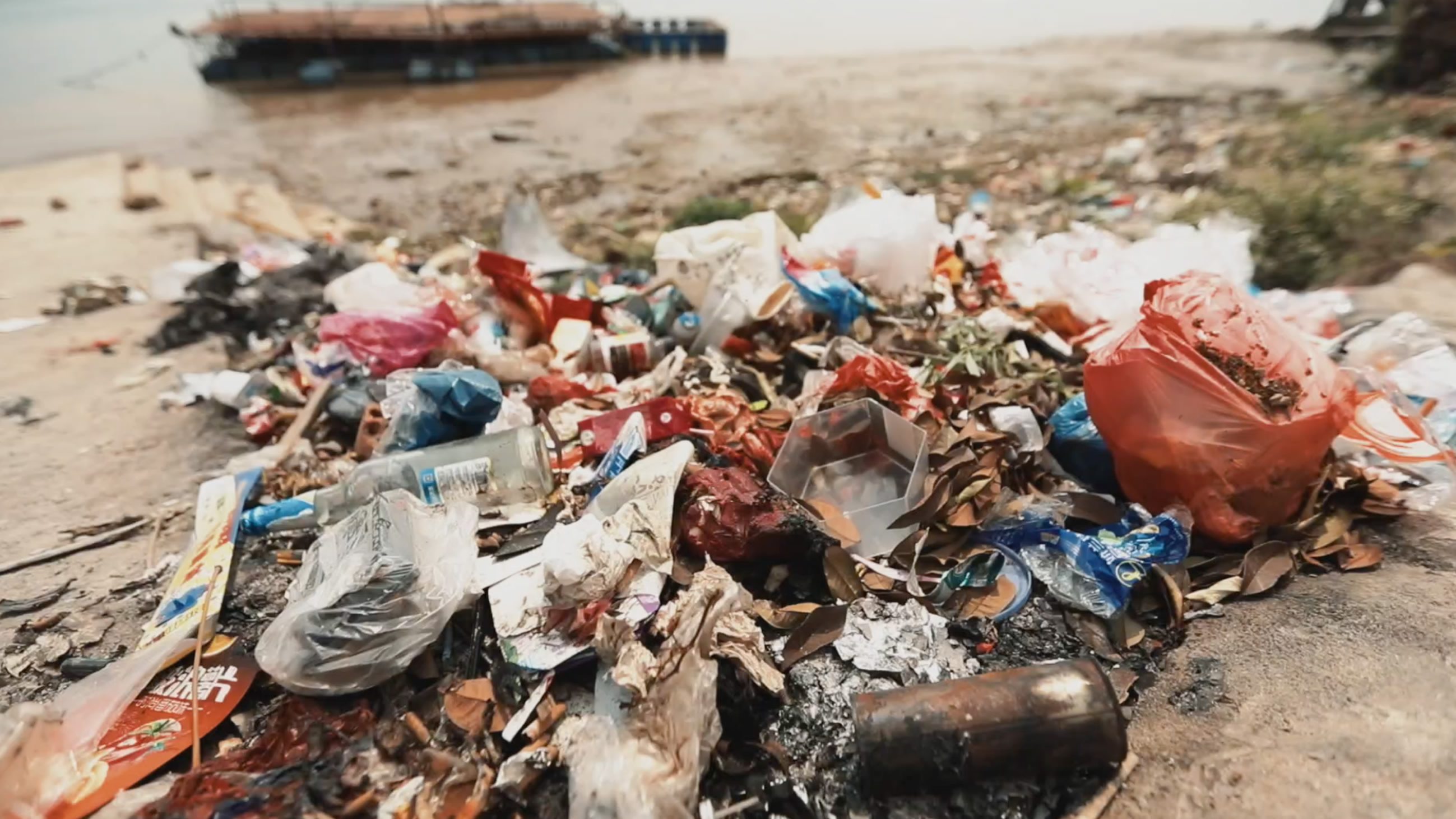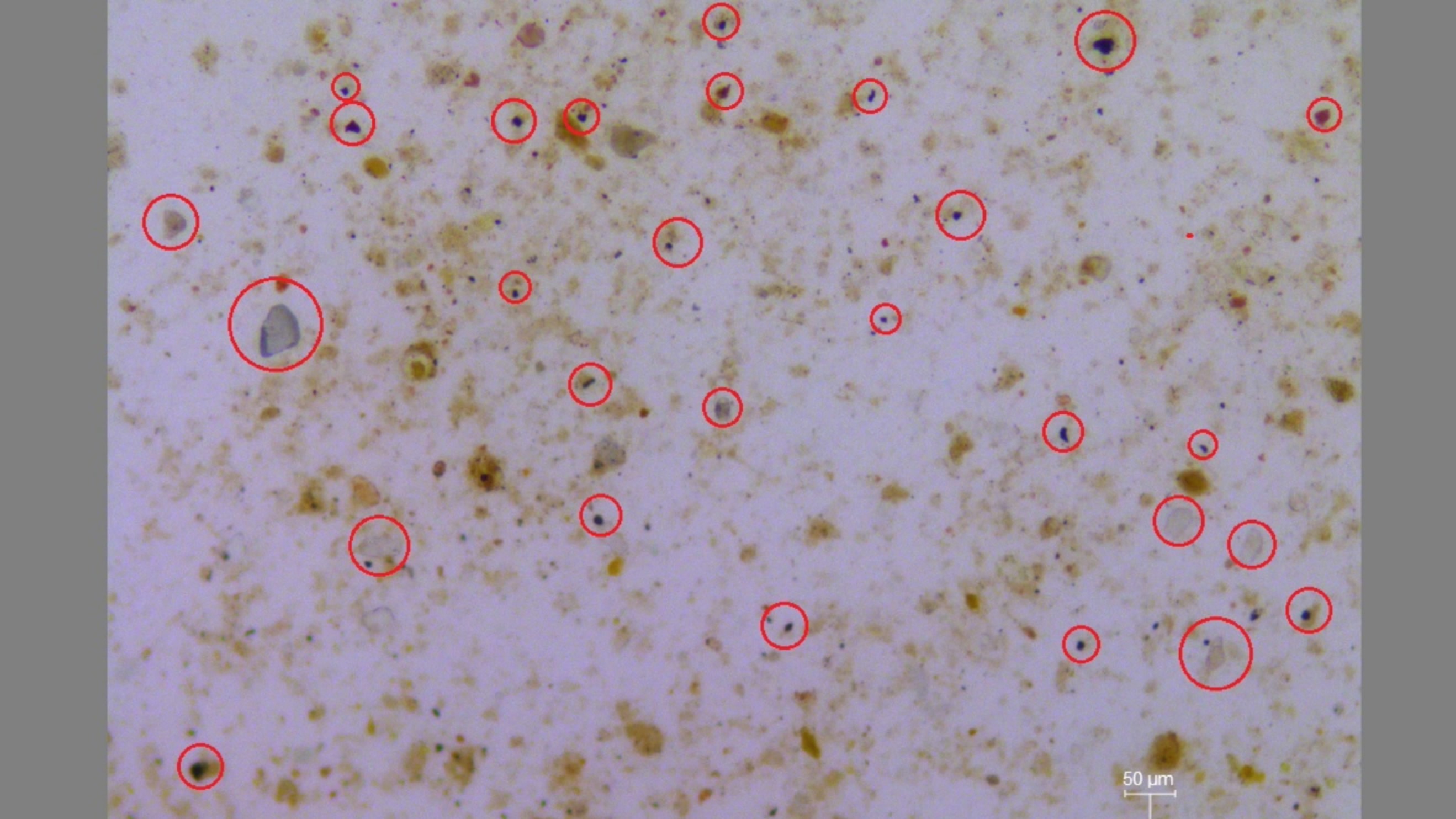
Pollution
15:58, 22-Apr-2018
Plastic pollution endangering China’s third largest river
By Ge Yunfei
03:57

Guangzhou, is a city lined with many scenic waterways, namely the Pearl River which is China’s third largest river, and has been running through the city for 2,000 years.
But plastic waste is beginning to gravely endanger the 20 million people living in the city.
Huang Mingzhi is a local scholar studying water pollution at the Environmental Research Institute of South China Normal University.
He told CGTN, “According to our study, there are over 600 micro particles of plastic in every milliliter of water. But in city rivers like we’ve seen before, the density of plastic particles is even higher. There are about 8 million tons of plastic waste flowing into the sea every year, and the Pearl River contributes over 100,000 tons."

Plastic pollution alongside the river /CGTN Photo
Plastic pollution alongside the river /CGTN Photo
Gao Yijian and his organization GEP (Guangzhou Environmental Protection) have been tracking the local water pollution issue for over 10 years.
To find out where the plastic comes from, they embarked upon an expedition to the upstream of the Pearl River. At one tributary which was some 70 kilometers outside downtown Guangzhou, they found a river bank covered with plastic bags, boxes, and bottles.
Gao said that they used to try to collect the plastic that they found but that there was simply too much. Now there are commercial companies trying to clean up some of the plastic waste. But each year when the flood season comes, huge waves of solid waste from upstream will still cover the river bank.
“To really solve this issue, we need more local environmental NGOs who can educate and unite people to do the right thing.”
Not far away from the tributary is a small town called Jinli. At noon each day, hungry students and workers buy lunch from local street vendors.
Porridge, drinks, and meals are all individually packed in plastic and most of the waste inevitably ends up on the ground or in the river.
Huang Mingzhi said he has found micro plastic particles in 80% of the local tap water.

According to Huang Mingzhi's study, there are over 600 micro particles of plastic in every milliliter of water in city rivers. /CGTN Photo
According to Huang Mingzhi's study, there are over 600 micro particles of plastic in every milliliter of water in city rivers. /CGTN Photo
“When micro plastic particles are absorbed by the human body, they settle in human organs like the liver, the stomach and the intestines. Plastics are very hard to digest. So consuming them will cause long-term damage to peoples' digestive and immune system.”
Gao Yijian and his team have been organizing various activities to remind people of the dangers of plastic waste. A volunteer told CGTN that local governments can do their part to improve the water quality, but residents along the river can do so much more, like putting an end to littering.
Gao hopes one day that the government and residents can work together to establish a well-functioning plastic recycling system. Ge Yunfei, reporting for CGTN, from the Pearl River in Guangdong Province.

SITEMAP
Copyright © 2018 CGTN. Beijing ICP prepared NO.16065310-3
Copyright © 2018 CGTN. Beijing ICP prepared NO.16065310-3